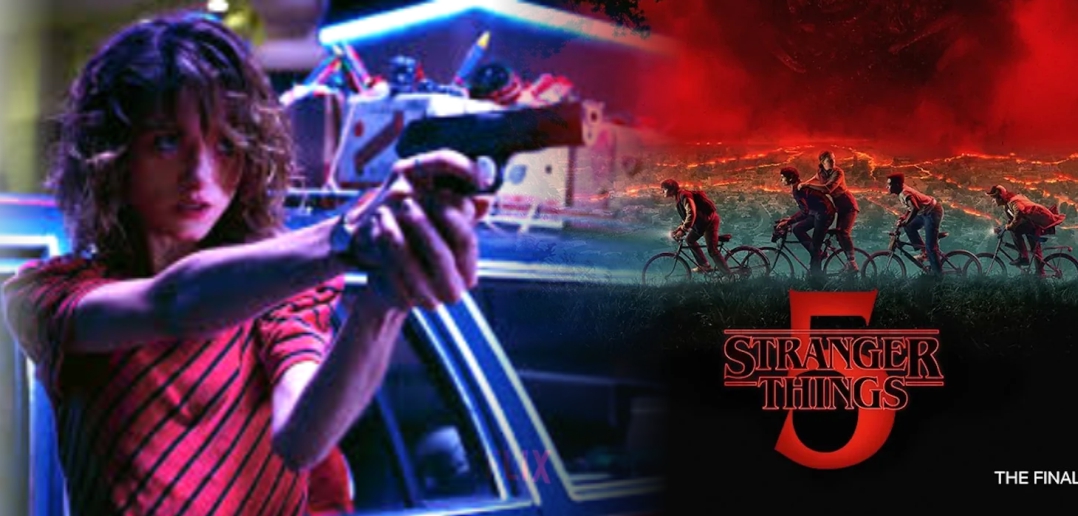With the Stranger Things finale season just around the corner, it feels like the right time to revisit the show that defined a generation’s nostalgia for the 1980s and the characters who grew with us through monsters, heartbreak, and synth-heavy chaos.
Fan groups and Reddit threads are buzzing with one collective plea: “Don’t let Steve Harrington, aka King Steve, die this season.” While I share the same sentiment (I’ve even prayed), I’ve been thinking about another character: Nancy Wheeler.
Have you ever realized that the “Good Girl” Nancy Wheeler might just be the true embodiment of feminism in Stranger Things?
The good girl who refused to be a stereotype
In Season one, Nancy starts as a familiar archetype—The “Girl Next Door.”
She’s polite, responsible, the daughter who does her homework on time and dates the high school heartthrob, Steve Harrington. She’s living the American teenage dream, right out of a John Hughes movie.
But when tragedy strikes —Barb’s disappearance —Nancy’s entire world fractures. And instead of collapsing under guilt or fear, she takes charge. She defies her parents, challenges authority, and walks straight into danger with a gun and flashlight in hand. That moment transforms her from a background character into one of the show’s moral anchors.
Nancy doesn’t fight because she’s fearless—she fights despite fear. That’s her feminism: not about dominance, but about agency.
Not love, but following what’s right
Nancy Wheeler’s relationships with Steve Harrington and Jonathan Byers have often been framed as a love triangle, but that completely misses the point. Her story isn’t about choosing between two boys—it’s about choosing between comfort and conviction.
With Steve, Nancy begins where most teenage girls are expected to: dating the charming, popular guy who seems to have it all. But when tragedy hits Hawkins, she realizes that being “King Steve’s girlfriend” means nothing if she can’t live with herself. Steve worries about his reputation; Nancy is concerned about doing the right thing. So she steps away—not out of heartbreak, but out of clarity. She refuses to be defined by someone else’s idea of normal.
Then comes Jonathan, quiet, awkward, and equally haunted. Their connection isn’t romantic at first; it’s moral. They see what others won’t, and they act when others freeze. Together, they break rules, question authority, and chase truth in a town built on silence. Jonathan doesn’t rescue Nancy, and Nancy doesn’t follow Jonathan—they move as equals, guided by purpose, not passion.
Her choices throughout the series make one thing clear: Nancy Wheeler doesn’t follow a boy; she follows her conscience. In a world obsessed with labels—girlfriend, good girl, rebel—she chooses something far rarer: doing what’s right, no matter who stands beside her.
Nancy vs the Hawkins Post: Feminism in the workplace
By Season 3, Nancy steps into the Hawkins Post — eager, intelligent, and ready to prove herself as a journalist. What she finds instead is a microcosm of 1980s workplace sexism: men who mock her ideas, steal her credit, and dismiss her as “Nancy Drew.”
But Nancy doesn’t back down. She keeps investigating, keeps digging, and ends up uncovering a story that none of her male colleagues could even imagine. She’s not asking for respect — she’s earning it in the hardest way possible.
Her newsroom arc isn’t just plot development; it’s social commentary. Nancy becomes a mirror for every woman who’s had to work twice as hard to be taken half as seriously. Her anger is real, her defiance earned, and her victory quiet but absolute.
Courage over image
Throughout Stranger Things, Nancy repeatedly chooses what’s right over what’s easy. Whether it’s fighting monsters, confronting corruption, or protecting those she loves, she moves through fear like it’s part of the job.
She doesn’t perform bravery; she embodies it.
She doubts, hesitates, even cries — but never retreats. That’s what makes her courage so human.
Just a girl with a gun
At the heart of Stranger Things, amidst monsters, portals, and chaos, stands Nancy Wheeler, just a girl with a gun. Not a superhero, not a chosen one, not someone gifted with powers from another dimension. Just a girl who decided she wouldn’t wait for someone else to save her friends.
Her weapon isn’t strength; it’s conviction. She loads that gun not out of rage, but out of responsibility. Every time she steps into the dark, it’s not because she’s fearless; it’s because she refuses to be powerless.
Nancy Wheeler doesn’t fight for glory. She fights for the truth. And that’s what makes her quietly revolutionary.
Because sometimes, feminism doesn’t roar. Sometimes, it looks like a girl standing alone in the shadows of a small town holding a gun, and saying to the world: “If no one else will do it, I will.”
Season 5: One last shot
As we head into the final season, fans are hoping for epic battles, emotional closure, and maybe even redemption for a few beloved characters. But more than anything, I hope Nancy Wheeler gets the moment she deserves — something iconic, something final, something that reminds everyone why she was never just the “good girl.”
After all, she’s not just a girl with a gun. She’s the conscience of Hawkins — and maybe, just maybe, the heart of Stranger Things itself.









